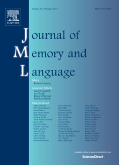 A psychology researcher formerly based at Stanford University has logged her fifth retraction due to unreliable results.
A psychology researcher formerly based at Stanford University has logged her fifth retraction due to unreliable results.
According to the notice in the Journal of Memory and Language, Sandra Lozano takes full responsibility for the retraction.
Apparently, the retraction has been in the works for eight years — and in that time, journals have retracted four other papers co-authored by Lozano.
A Stanford spokesperson told us:
…the retraction process for this paper was initiated in 2008 but effectuated only recently by the journal. Sandra Lozano left Stanford in 2008 without completing a Ph.D. degree.
We contacted the publisher, Elsevier, to ask why the retraction took eight years to appear. A spokesperson told us:
We don’t have any further explanation about why the retraction took so long. The current editor of JML worked with the authors over the past several months to complete and publish the retraction.
Here’s the retraction notice, issued earlier this month:
This article has been retracted at the request of the Editor-in-Chief.
All authors retract this article. Barbara Tversky believes that the research results cannot be relied upon; Sandra C. Lozano takes full responsibility for the need to retract this article.
The 2006 paper, “Communicative gestures facilitate problem solving for both communicators and recipients,” has been cited 16 times — 12 times since 2008, according to Clarivate Analytics’ Web of Science, formerly part of Thomson Reuters. (Incidentally, we’ve found a book chapter authored by Tversky and Lozano with the same title, published in 2007.)
Barbara Tversky, now professor emerita of psychology at Stanford, declined to comment. We weren’t able to find current contact details for Lozano.
All of Lozano’s four other retracted papers list Bridgette Martin Hard as a co-author. We approached Hard, who is also at Stanford, for a comment, but she referred us to university officials.
Two of Lozano’s papers were retracted by Cognition in 2009. The retraction notice for both papers reads:
All authors retract these two articles. Bridgette Martin Hard and Barbara Tversky believe that the research results cannot be relied upon; Sandra C. Lozano takes full responsibility for the need to retract these articles.
One of these papers, “Putting action in perspective,” has been cited 10 times since it was published in 2007. The other, “Putting motor resonance in perspective,” was published in 2008, and has garnered five citations.
The two other retractions — both of which were issued in 2008 — contain similar text.
One 2006 paper, “Perspective taking promotes action understanding and learning,” appeared in the Journal of Experimental Psychology: Human Perception and Performance, and has 13 citations to its name. Here is its retraction notice.
The remaining 2006 paper, “Hierarchical encoding of behavior: translating perception into action,” was published in the Journal of Experimental Psychology: General, and has notched 20 citations since publication. Here is its retraction notice.
Editor’s note 12/2/16 10:47 a.m. eastern: We’ve removed the last sentence of the post, which noted that one of the researchers has papers flagged by Statcheck, a program that searches for alleged statistical mistakes. In retrospect, we agree with some who’ve commented on Twitter that this was not worthy of mention, as more than 50,000 psychology studies have been flagged by the algorithm, and singling out one researcher may have cast unfair doubts upon the researcher’s work.
Like Retraction Watch? Consider making a tax-deductible contribution to support our growth. You can also follow us on Twitter, like us on Facebook, add us to your RSS reader, sign up on our homepage for an email every time there’s a new post, or subscribe to our daily digest. Click here to review our Comments Policy. For a sneak peek at what we’re working on, click here.
I’d like to know what ‘unreliable results’ is defined
What does unreliable results mean?